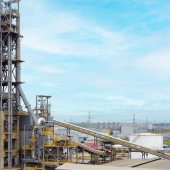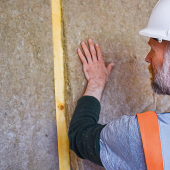Industry opinion: product safety

BSIF CEO Alan Murray explains why 2023 will see a greater focus on product safety, including increased scrutiny of goods sold by third-party sellers on online marketplaces
The UK has always had a reputation for stringent product safety standards, but with constant innovation and the rise of e-commerce, many markets have become increasingly hard to regulate.
Personal Protective Equipment (PPE) is a case in point. The Covid-19 pandemic highlighted how quickly substandard and potentially dangerous products can find their way onto the market, with reports suggesting billions of pounds of public money were ultimately wasted on unusable PPE. Unfortunately, unacceptable products have been finding their way into UK marketplaces way before Covid-19. This is illustrated by the British Safety Industry Federation’s (BSIF) latest analysis.
As well as auditing its membership annually to verify compliance and competence, BSIF tests a selection of PPE from non-BSIF members. Between December 2021 and December 2022, a total of 118 non-member products were tested. Only 15 (13%) of these products passed the test, with the results for five of the products still pending. This means 98 products (83%) failed to meet the test’s criteria, many of which are still available and being sold to unsuspecting users.
These findings are in contrast with products supplied by BSIF Registered Safety Suppliers, which are committed to only selling certified PPE and trading honestly and ethically.
What’s changing?
2023 will see the introduction of a new post-EU Product Safety Framework, which will help to strengthen the rules around the sale of products including PPE. Timings for publication of the framework are still to be confirmed, but there will be a strong focus on improving the safety and compliance of goods sold by third-party sellers on online marketplaces. We expect to see stricter responsibilities for online vendors and harsher penalties for those that fail to comply.
At the same time, the environmental, social and corporate governance (ESG) agenda is having a growing impact. Companies looking to strengthen their ESG performance are scrutinising the credentials of their suppliers and choosing only to work with responsible companies. When it comes to buying PPE and safety equipment, many buyers now realise that specifying the BSIF’s Registered Safety Supplier Scheme is the easiest way to ensure they are dealing with suppliers that are compliant, competent and trustworthy.

The British Safety Industry Federation (BSIF) is the UK’s leading trade body within the safety industry. BSIF members include manufacturers, distributors, test houses, certification bodies, safety professionals and service providers. It provides support and guidance on a wide range of occupational safety issues.
It’s therefore no surprise that BSIF saw a significant number of public and private sector organisations mandate the Registered Safety Supplier Scheme for their supply chains in 2022. As the focus on product safety sharpens this year, we expect that number to increase.
For more, visit: bsif.co.uk
For a full list of Registered Safety Suppliers, visit: registeredsafetysupplierscheme.co.uk






